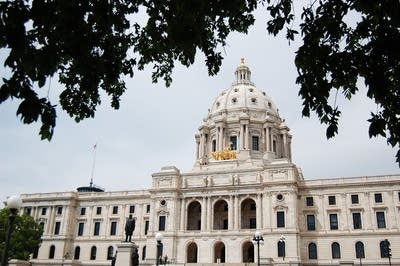What didn't happen in the 2010 legislative session
Go Deeper.
Create an account or log in to save stories.
Like this?
Thanks for liking this story! We have added it to a list of your favorite stories.

This year's legislative session may be best remembered for what didn't happen, rather than what lawmakers accomplished, as the state's budget impasse overshadowed many of the key issues the Legislature set out to tackle back in February.
Education reform, a new Vikings stadium, judicial election reform and tougher prison sentences for sex offenders are just a few of the dead ends the Legislature headed down this session.
Education In education, lawmakers worked out a school bill, but didn't deal with some of the most controversial education policy changes. The final measure considered by lawmakers Sunday night doesn't address alternative ways to license new teachers or change job evaluation for existing teachers.
State education officials said those were key factors in a bid to win $175 million in federal "Race To The Top" education funding, which the state now won't get.
Turn Up Your Support
MPR News helps you turn down the noise and build shared understanding. Turn up your support for this public resource and keep trusted journalism accessible to all.
Republican Gov. Tim Pawlenty wanted the changes, and the DFL Senate included them in its bill, but the House rebuffed the "Race to the Top" changes. The statewide teacher's union Education Minnesota lead the opposition, saying the state needs to maintain its high standards for teacher training.
DFL Sen. Kathy Saltzman, of Woodbury, said Education Minnesota was an obstacle to valuable reform.
"What was so disappointing was that there wasn't even a willingness to sit down and listen," Saltzman said. "That's one thing that we teach our kids to do. We teach our kids to be critical thinkers, respectful debaters and problem solvers. And we couldn't even have that kind of discussion on some of these issues."
The Vikings stadium
The closing weeks of the legislative session also saw a last-minute push to finance a new home for the state's NFL franchise. The Vikings are scheduled to play in the Metrodome through the end of the 2011 season, but say they won't renew their lease after that.
A bi-partisan proposal to pay for a $791 million fixed-roof stadium took the field at the Capitol two weeks ago. But the funding -- such as a Twin Cities hotel and rental car tax and a sports memorabilia tax -- was stripped out of the measure within hours.
Lawmakers replaced the taxes with a seat license proposal, but the effort died for good this year after the Minnesota Supreme Court rejected Gov. Pawlenty's unilateral budget cuts from last year, and lawmakers had to start over on the budget.
Judicial changes
An effort to change the way judges are elected also failed this session.
Supporters want a constitutional change that would turn elections into up and down votes on sitting judges. The current multi-candidate elections were opened up to partisan campaigning by the U.S. Supreme Court in 2002.
Pitched by a pair of DFLers, the election reform measure was opposed by both abortion rights opponents and by some Democrats. DFL Rep. Bobby Champion, of Minneapolis, says he's not ready to give up open elections and let state officials pick the judiciary on their own.
"When you think in terms of people of color being able to be a part of the process, to become a judge, you know as well as I do Alan Page wouldn't be a judge right now if he didn't sue in order to be put on the ballot and eventually to win," Champion said.
Other issues
Other issues left on the table this session include more than $300 million in borrowing projects vetoed by the governor, many of them at state universities. The chairman of the Senate's capital investment committee said he'll try to pass them again in a supplemental bonding bill next year.
Gov. Pawlenty didn't get everything he wanted, either. The governor had pushed to lengthen prison sentences for sex offenders, instead of locking them up in a psychiatric facility after they've served their prison terms. He also called for a lower corporate tax rate, but lawmakers rejected both of those efforts.
With Pawlenty and 21 legislators not seeking re-election this year, a new administration and a new crop of legislators will get to tackle those issues next year.
The 2011 session starts January 4.
Dear reader,
Political debates with family or friends can get heated. But what if there was a way to handle them better?
You can learn how to have civil political conversations with our new e-book!
Download our free e-book, Talking Sense: Have Hard Political Conversations, Better, and learn how to talk without the tension.





